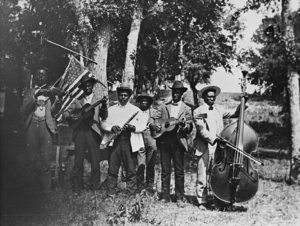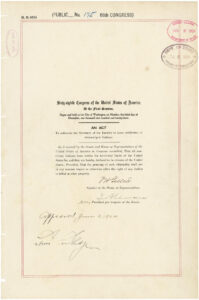
Juneteenth
Juneteenth, short for “June Nineteenth,” commemorates the day when federal troops arrived in Galveston, Texas, on June 19, 1865, to inform and ensure the last group of enslaved Black people were finally freed. This was 2.5 years after the Emancipation Proclamation of 1863 was signed into law.
Juneteenth became a national holiday in 2021. Now, this day also provides an opportunity to reflect on how to put an end to discrimination and is a symbol of resilience for all the Black community has accomplished since that day in 1865. Many people participate in picnics, education activities, and gatherings.
View the details of Chapel Hill-Carrboro’s Juneteenth 2023 celebration.
 LGBTQ+ Pride Month
LGBTQ+ Pride Month
The month of June celebrates the lesbian, gay, bisexual, transgender and queer communities. Known as LGBTQ+ Pride Month, the festivities recognize the 1969 Stonewall Uprising in Manhattan when groups in support of gay rights protested for several days. This sparked a movement in the United States and across the world. Now, events such as parades workshops, concerts, educational speeches and gatherings fill the month’s calendar.
Thanks to the generosity of Carolina Pride Alum Network members, a digital exhibit has opened at UNC Libraries. The exhibit, “Queerolina: Experiences of Place and Space Through Oral Histories,” is an interactive, digital map that pinpoints places and spaces on or surrounding the Carolina campus that are relevant to members of the LGBTQ+ community. If you’re looking to attend an event, UNC Health is proud to sponsor OUT! Raleigh Pride on Saturday, June 24, 11 a.m. – 6 p.m.
Caribbean-American Heritage Month
The commemoration of Caribbean-American Heritage Month was issued by President George H.W. Bush to recognize the significance of Caribbean people and their descendants in the history and culture of the United States. Learn about Caribbean Americans who have made a positive impact on the nation such as Alexander Hamilton, Colin Powell and Malcolm Gladwell.

Indian Citizenship Act of 1924
On June 2, 1924, President Calvin Coolidge signed into law the Indian Citizenship Act granting citizenship to all Native Americans born in the United States. However, many were not able to vote until 1965 due to state legislation. Read more about the events that led up to this day on the Library of Congress website.
Helen Keller’s Birthday
Helen Adams Keller (June 27, 1880 – June 1, 1968) was an author, disability rights champion, political activist, and lecturer from the United States. She helped start the American Civil Liberties Union in 1920. The goal of the non-profit organization is to defend and preserve the individual rights and liberties guaranteed to every person in this country by the Constitution and laws of the United States. Read more about Helen Keller’s story at the National Women’s History Museum.